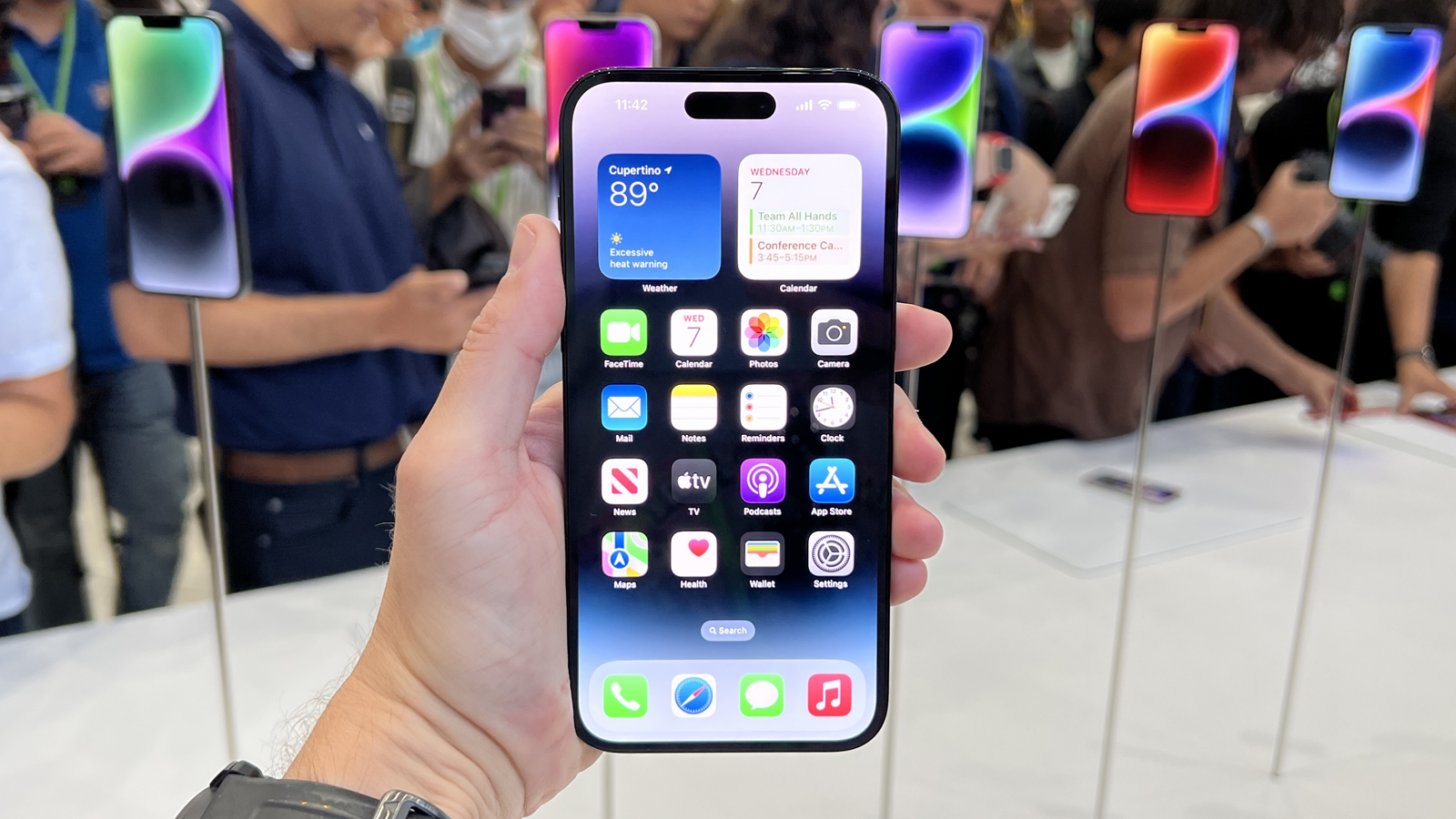Apple could deliver a huge iPhone performance boost as soon as next year
Better, faster, stronger

Sign up for breaking news, reviews, opinion, top tech deals, and more.
You are now subscribed
Your newsletter sign-up was successful
With its M3 chip, Apple was the first company to put a consumer-grade 3nm chip in its devices, and according to a new report chips made with the improved 2nm manufacturing process could make their way into your iPhone as soon as next year, potentially bringing major performance improvements.
The information comes from a paywalled report at DigiTimes (via AppleInsider), which claims that chipmaker TSMC – which supplies Apple’s iPhones and Macs – is making good progress with its plans for a 2nm chip dubbed N2. Small-scale production will reportedly begin later this year, with mass production ramping up in 2025.
That would be too late for the chips to make it into this year’s iPhone 16 range, but the timeline puts these 2nm chips on course for the iPhone 17 handsets, which we'd expect to launch in September 2025. In recent years, Apple has saved its most advanced chips for its Pro phones, so we’d expect to see the 2nm chip launch in the iPhone 17 Pro and iPhone 17 Pro Max first, then make an appearance in the entry-level iPhone 18 and iPhone 18 Plus the following year.
What’s all the fuss about? Well, the souped-up manufacturing process makes chips faster and more efficient, meaning there’s potential for a sizable performance jump when these chips make their way into iPhones. We saw that when Apple switched to 3nm chips – Apple’s M3 series offers a major graphics boost over their M2 predecessors, for instance – and we can hopefully look forward to similar benefits in the iPhone range.
DigiTimes adds that TSMC is also working on an advanced 2nm processor (called N2P) that's expected towards the end of 2026, which might make it too late for the iPhone 18 Pro. Beyond that, the manufacturer is aiming for 1.4nm processors (known internally as A14), but we don’t yet know the schedule for those.
AI for your iPhone

Apple’s smartphone chips already offer performance that easily outstrips most rivals. So you’d think the company wouldn’t be in a major rush to switch over to 2nm chips given how impressive their products already are.
But the artificial intelligence (AI) revolution has really shaken things up. Rumors suggest Apple is working hard on its own generative AI tools, but the company is undoubtedly behind competitors like OpenAI and Microsoft in this area. That could all change in June, however, when Apple is set to unveil iOS 18, which is set to bring with it a huge range of AI capabilities.
Sign up for breaking news, reviews, opinion, top tech deals, and more.
Apple has been building AI into its chips for years – its A-series iPhone chips have a Neural Engine dedicated entirely to AI tasks – so Apple will likely be able to offer up some impressive AI performance when iOS 18 drops. But without a 2nm chip, people might be left wondering what could have been.
The good news is that they won’t have to wait too long. With the company’s first 2nm chip possibly set for next year, we might soon see what all the fuss is about.
You might also like

Alex Blake has been fooling around with computers since the early 1990s, and since that time he's learned a thing or two about tech. No more than two things, though. That's all his brain can hold. As well as TechRadar, Alex writes for iMore, Digital Trends and Creative Bloq, among others. He was previously commissioning editor at MacFormat magazine. That means he mostly covers the world of Apple and its latest products, but also Windows, computer peripherals, mobile apps, and much more beyond. When not writing, you can find him hiking the English countryside and gaming on his PC.